Home » Researching Kratom: Prescription opiate dependance
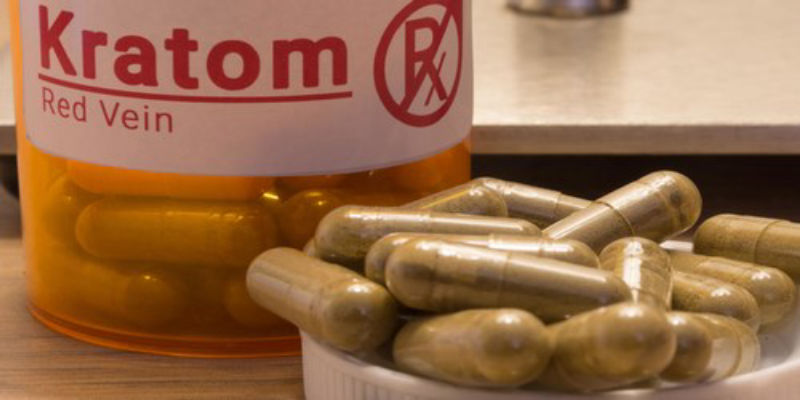
Researching Kratom: Prescription opiate dependance
- Anthony Dent, Founding Member
- 3 Comments
A recent study on Kratom suggests more long term benefits in combating opiate epidemic
-A new study on kratom not only reinforces its potential to aid in reducing the damage of the American opiate epidemic, but suggests long term effects in managing opiate withdrawal symptoms.
We can’t eliminate pain from our world. As I write this, our nation embroiled in the worst health crisis since the Spanish Flu of 1918, tallying 1,000+ deaths a day, that notion could never be more clear. But we can attempt to reduce its impact.
This humanitarian impulse is at the root of the Hippocratic Oath. Doctors, almost uniformly angelic, find the basis of their drive in seeking to aid others. It is fair that we scour nature for all that could assist in this noble mission. But unfortunately, there is a tit for every tat.
Kratom and Opiates
The opiate epidemic may not seem like a traditional epidemic, but it certainly is one, even if by body count alone. Almost 2/3rds of the country has a narcotic prescription written for them every year; at least 20,000 Americans died from prescription opiate overdoses alone, with more than 70,000 dying as a whole by opiates. It seems counterintuitive that something designed to minimize pain, ostensibly a fantastic tool for medical providers, could be at cause for so much of it.
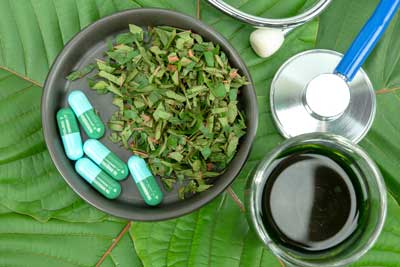
Yet here we are. While some solutions, like methadone, have been presented to offer opiate dependent users a chance to quit and regain their functionality, they can be just as dangerous. Methadone is one of the most common causes of opiate related overdose death. It is clear that new alternatives need to be found.
Luckily, a mass of anecdotal evidence and now nascent science is suggesting that help has been found. Kratom, with countless tales from grateful members of the kratom community, is beginning to be recognized for its significant potential as a tool to reduce the harm of the opiate epidemic. Kratom is not an opiate. Most users report that its effects can hardly be compared to that of narcotics; in fact, most users would sooner compare it to coffee than vicodin – and that its closely related to the coffee plant is no mistake. However, kratom does share a receptor with opiates in the brain. While the mechanisms are still not completely understood, kratom is used by addicts and prescribed opiate users that they may quit opiates, and in the case of the prescription users, maintain many of the benefits of using painkillers. without the overbearing, sometimes lethal, drawbacks.
Kratom users report significant benefits derived from consumption, and as the din of its potential can no longer be ignored, the medical community is beginning to consider the possibilities that kratom can offer; from aiding in mental health, to mangining inflammation, and much more, according to consistent reports given by kratom users. But most imminent are the reports of kratom’s viability as a substance that aids opiate users in quitting. Remarkably, kratom acts to inhibit craving and withdrawal symptoms. These insidious side effects can surprise even the most astute and disciplined user, who may be forced into long term use due to an unforeseen injury. Given these benefits, it can begin to hedge against the steep cost of addiction, which can lead to the use of far more dangerous drugs like fentanyl, and have severely adverse effects on one’s lifestyle and mental health.
Kratom and Pain
What separates kratom, however, is not its mechanism of cessation, but also its ability to treat. While kratom does not cure any diseases, users report that kratom can effectively replace opiates by managing pain, aiding in sleep, and more. Certain strains, like Red Vein kratom, seem particularly attuned to medicinal use. The never ending chorus from kratom users who have switched from opiates is melodic; “Kratom has saved my life.” In all my time, I’ve never heard so many people hammer home the same refrain.
What users report noticing above all else about kratom is that the steep cost of prescription narcotic use is absent when using kratom medicinally. Opiates have a staggering – literally – array of damaging side effects. Anecdotally, though, is what chronic opiate users report as feeling the loss of their individuality and personality. Opiates can so easily rob even responsible users of their spirit. The tragedy is that this cost is often acceptable that chronic pain can be managed. After years of chronic prescription opiate use, those I’ve spoken to uniformly wish they could stop using, without losing the benefits of pain management. Kratom does have side effects – but none of them are lethal, or even close to it. Kratom can cause constipation, mild stomach discomfort, and an overdose has never been recorded – compare that to a collapsed respiratory system, deep depression, crippling depedance, etc… of opiates. Ever more tip the scales.
Incredibly, we’ve interviewed kratom users (linked above) who swear that kratom is more effective at managing their symptoms than the opiates are. Their motivation for mendacity could not exist here; a lie would only prolong their suffering. Instead, these people – like so many – have found kratom to be an incredible salve. Even if it did not mimic the analgesic effects of prescription opiates, its potential in combating the opiate epidemic would alone merit significant attention.
Thankfully, as kratom has gained bipartisan support, funds are being provided to further study this tantalizing prospect. While the anecdotal evidence is so widespread and compelling that a certain part of us wishes to proceed head on intuition alone, it is best that we have a comprehensive understanding of how kratom works, any potential downsides, and if we could bring it into the fold as a formal answer to the opiate epidemic. People trapped by opiates should not have to discover for themselves a natural alternative that, up until a few years ago, was obscure and misunderstood.
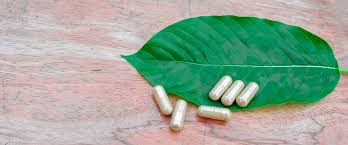
—
Pain of the flesh is one thing. But pain of the spirit is another. The opiate epidemic causes far too much of the latter.
That kratom has the potential to aid in both, by means of its physiological medicine effects, and more importantly, its ability to combat the opiate epidemic and save lives, makes better implementation of kratom a scintillating prospect.
Let’s make sure understanding and accessing it is as painless as possible.
Do not take anything on this blog as medical advice. Always consult with your doctor before making any decisions about your health. Do not stop taking any doctor prescribed medications unless you have talked with your doctor. Kratom does not cure any diseases. Further research will continue to show that kratom does not cure any diseases. Thus, do not take kratom as a cure for any diseases. Some studies show that kratom may be able to lessen some symptoms. This is not proven. The content of this blog is based on reports, is speculation and conjecture, and should not in any way be regarded as proven or medical advice. Always conduct thorough research. Never take medical advice from the internet. Always think carefully about what you put into your body. Always consult your doctor before making any changes that may affect your health.
Featured Products
-
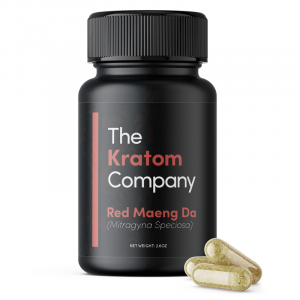 From $24.00Select options This product has multiple variants. The options may be chosen on the product page
From $24.00Select options This product has multiple variants. The options may be chosen on the product page -
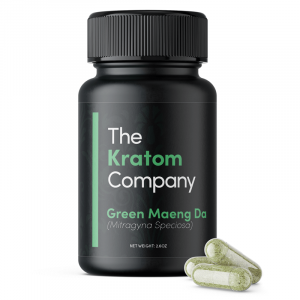 From $24.00Select options This product has multiple variants. The options may be chosen on the product page
From $24.00Select options This product has multiple variants. The options may be chosen on the product page -
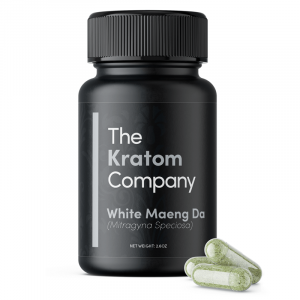 From $24.00Select options This product has multiple variants. The options may be chosen on the product page
From $24.00Select options This product has multiple variants. The options may be chosen on the product page
Explore More Posts
Product Search
Featured Products
-
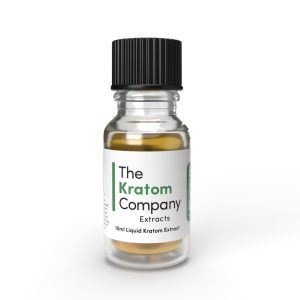 Pure Kratom Liquid Extract
Rated 4.72 out of 5From $20.00
Pure Kratom Liquid Extract
Rated 4.72 out of 5From $20.00 -
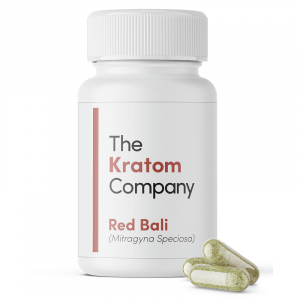 Red Vein Bali Kratom Capsules
Rated 4.70 out of 5From $24.00
Red Vein Bali Kratom Capsules
Rated 4.70 out of 5From $24.00 -
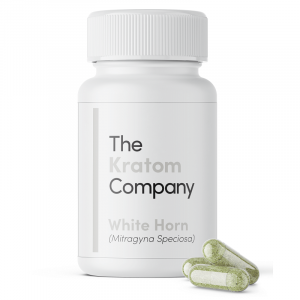 White Horn Kratom Capsules
Rated 4.88 out of 5From $24.00
White Horn Kratom Capsules
Rated 4.88 out of 5From $24.00
Follow Us
Strains
Blogs
NEWSLETTER
Sign up for our newsletter!

These statements and products presented on this website have not been evaluated by the Food and Drug Administration FDA. The products mentioned on this website are not intended to diagnose, prevent, treat or cure any diseases or health conditions. Therefore any information on this website is presented solely as the opinions of their respective authors who do not claim in any way shape or form to be medical professionals providing medical advice. The KRTM Company and its owners or employees cannot be held responsible for, and will not be liable for the inaccuracy or application of any information whatsoever herein provided. By purchasing our products you agree that you are aware and in compliance with your local county, state, or federal regulations. Must be 21 years or older to purchase Kratom. The US FDA has not approved kratom as a dietary supplement. We do not ship to the following states, cities and counties in the US where Kratom is banned: Alabama, Arkansas, Indiana, Rhode Island, Vermont, Wisconsin, Sarasota County, FL, Union County, MS, Denver, CO, San Diego, CA, and Jerseyville, IL.

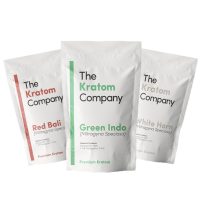

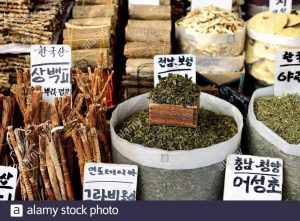


This Post Has 3 Comments
This was super helpful thank you!
Fibromyalgia pain for me is diminished 90% by Kratom.it changed my life. I no longer spend most of my life in bed.i am as close to being where I was before my fibromyalgia as ever. Constipation is the only side affect for me. One must be aware of this before using kratom. I take Dulcolax every day. Kratom is God’s answer to my prayers. I take no other meds for pain.
Thank you for spreading this info! More and more people are starting to understand thanks to articles like this!